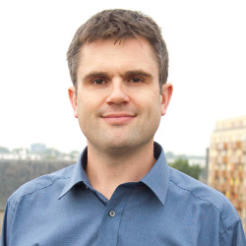Craig Bennett, chief executive of Friends of the Earth, explains why he has written to the Prime Minister about the way this week's campaigning guidance was released.
Sometimes you wake to news cycles that are as predictable as the Today running order on Radio 4. At other times it’s possible - as we all know - to be broad-sided by the unexpected, and then again, as this past weekend has shown, a story can be reported in such a manifestly factually inaccurate way that the only option is a swift and robust response.
On Monday morning, the Charity Commission issued new guidance, telling registered charities only to take part in the European debate “in exceptional circumstances” – as well as admonishing that it would be closely monitoring activity. Even “in” or “leave” posters stuck up by staff in charity offices (or toilets?) would result in penalties, the guidance said. This, many weeks after plenty of charities had already announced their position.
The Charity Commission sent embargoed copies of the guidance to the media at 12 noon on Sunday. Surely it’s wrong, on any issue, but particularly on one as contentious as the EU referendum, to make this guidance available to the media before charities themselves? What hope have charity staff, let alone non-executive trustees got to review and consider such guidance before we start receiving press calls when the media is given a 12-hour head start? (Friends of the Earth received the guidance from The Commission at 00:02hrs on Monday).
But it’s worse: someone leaked a copy of this guidance to Eurosceptic newspapers last week. We know because Friends of the Earth was contacted by The Daily Telegraph about it last Friday, and they originally published their inaccurate attack on us on their website Saturday lunchtime before removing it and putting it on the front page of the newspaper on Monday morning.
The Charity Commission executive has categorically assured me that the story was not shared by their office before 12 noon Sunday, and I believe them 100 per cent. But someone with access to the document outside of Charity Commission staff leaked it before then, and did so for purely political purposes (rather ironic, given it is a document seeking to curtail political campaigning by charities).
These things aside, the main and substantive issue is whether we charities should be encouraged or curtailed from campaigning around the EU referendum.
And this is why I wrote to the Prime Minister on Monday, not least because it was David Cameron himself who called on NGOs to get “stuck into” the referendum debate.
As NCVO's chief executive Sir Stuart Etherington said, the outcome of the referendum will have a profound and shaping effect on the causes for which individual charities campaign.
Given this, I think that Friends of the Earth would be failing to have proper regard to our charitable objects if we didn’t share our evidence that leaving the EU would be harmful for the environment. Why?
Because flooding and extreme weather threatens not just livelihoods but lives here in the UK; we have absolutely unacceptable levels of air pollution that leads to tens of thousands of early deaths; as well as a declining bee population that puts pollination of our very food at risk – the environmental challenges we face, and these are but three, cannot be dealt with by one country alone.
These are the real issues. And it’s these that should be forensically debated during the referendum on the UK’s membership of the EU; along with the ways in which the EU has benefited the UK environment. This is about our future: a fundamental question about who we are, our values, and what we will have to do if we are to have a chance at preserving and protecting our planet.
There are four months left of this campaign, and nothing will stop Friends of the Earth doing what we believe, based on the evidence, is right - making the case for nature and the environment. Entirely contradictory to what has been reported, and what some familiar voices like to parrot, Friends of the Earth receives 90 per cent of our funding from individuals. We get less than 1 per cent from the EU.
We welcome scrutiny, and of course we want to be covered by the media, but the terms of both transactions must be nonpartisan and transparent.
Craig Bennett is chief executive of Friends of the Earth he's on Twitter @craigbennett3








